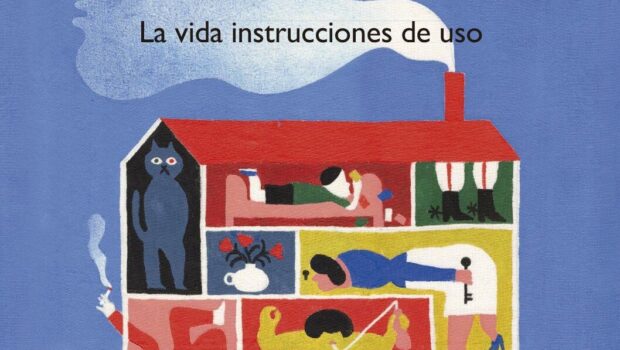Ischia
Greg Walklin
Ischia
By Gisela Heffes
Translated by Grady C. Wray
Deep Vellum Press
When Joan Didion famously wrote, in her essay “The White Album,” that “[w]e tell ourselves stories in order to live,” she was primarily referring to our tendency to explain tragedy in karmic terms—a reaction rooted in our psychological need for comfort with the randomness of the world. That the man who crashed his motorcycle, for example, was being careless and negligent. Or that the woman who was attacked shouldn’t have been jogging at 5 a.m. But Didion also grasped that narrative was central to anyone’s identity—that we are characters we create, living in the novel that we’ve constructed and that we call our own lives.
Ischia, Gisela Heffes’ novel–originally published in 2000, and now available in an English translation by Grady C. Wray—is constituted of almost entirely of the stories the unnamed narrator tells herself. These are fictional stories with the novel, where the narrator imagines elaborate scenarios that might—though probably won’t—happen. The book asks us to consider the role that our own storytelling, and our own fantasies, play in our lives.The novel begins in Buenos Aires, as the narrator is waiting for her friend, Lara, to pick her up to go to the airport; the rest of the book stretches out over 200 pages while she spins more and more outlandish yarns, returning to the past intermittently. Most of these stories center on her teenage years and two principal friends: Lara, whom she nicknames “Brussels,” and Tomás, whose sobriquet is “Prague.” The narrator herself goes by “Ischia,” after the remote Italian island in the Tyrrhenian Sea.
The youngest of several children, Ischia’s father was abusive; her mother eventually died at a young age: “She was sick for some time, but worry and sadness distanced her more and more from reality, and one day she detached herself forever…She was forty-two when she died. Of a heart attack. They say she was tired.” The narrator and her brothers were “distributed…out to different houses, apartments, and homes in the country among family members and distant relatives that overnight began to have something more than a name: a mole on their skin, a hunched-over or straight body, a voice, and a smell.” She turns to her friends, to alcohol, and to drugs. Music becomes a refuge (perhaps a nod to Didion, one of the narrators’ favorite albums is The Beatles’ self-titled masterpiece). Unhappiness settles in.

Being an orphan is not Ischia’s only scar, however. One delve into the past, recounting a rape, is particularly devastating. Heffes’ and Wray’s language here is so understated that one almost—but not quite—imagines the assault didn’t actually affect the narrator: “And the truth is that after opening my eyes for the first time and seeing his concentrated look, his eyes teetering between disproportionate and horny, I didn’t open mine again. Leo was gentle, it’s true.” That last line in particular manages to encapsulate so much of the horror of the assault in such a jarringly ironic way. (Also, to note, the Just-World Hypothesis and its corollary, victim blaming, seems to find traction in rape trials.)
Difficult at times, Ischia improves as one gets accustomed to its voluble style. Each chapter is an unbroken paragraph: stories swell inside of other stories, and veer so far off piste that it’s easy to forget the original thread. Quite often, the real story, what really happened to the narrator, has to be peeled back from layered inventions. One particularly long fantasy about the narrator becoming pregnant and having a child spans multiple chapters.
Heffes’ language is usually sharp, and consistently impressive in its minute attention to detail and ability to maintain propulsion even without a typical dramatic arc. Much like stories written in the once-faddish second person, writing mostly in the future tense often leads to overusing certain words and ending up with repetitive, stilted prose; blissfully, that is not the case here. This book is less poetic in style, though, and more rhetorical—trying to convince of the reality of a fantastic scenario just dreamed up. Wray, perhaps because he has translated Heffes before, handles this all well and provides flowing and lucid English.
Heffes herself is a professor at Rice University and an erudite critic of Latin American culture and literature, with a particular focus on the role of place. Perhaps ironically, Ischia often times feels intentionally groundless—the narrator herself, perhaps because of her family situation, is not rooted in Buenos Aires and is, in fact, trying to escape it. “Beyond the horizon is an abyss,” Ischia narrates at one point. “And whoever crosses it falls forever.” Many of her stories have her leaving Argentina, and she has nicknamed herself and her friends after faraway European loci. Addiction helps her disconnect, and there are healthy doses of juvenile rage, too. (The “world is a big lie,” shesays, and “everything is a big piece of shit.”)
Ultimately, Ischia probes one underlying question about us: how we employ stories and how we tell them, and how they reveal what is going on inside us. One particularly insightful moment has the narrator challenging one of her friends after he envies celebrities’ freedoms. On the contrary, she says: ”[T]o me nobody does what they want or like.They often think they’re doing what they want, but, in reality, people do what they ought to do or what they think they ought to do. If you don’t believe me, ask them where they’d be right now and with whom if they could.”
If you’re not feeling seen by that quote—if you’re feeling that you’d answer the question that you’d be doing exactly what you are doing, exactly where you are, then perhaps that may just be a story you are telling yourself.
 Greg Walklin is an attorney and writer living in Lincoln, Nebraska. His book reviews have appeared in The Millions, Necessary Fiction, The Colorado Review, and the Lincoln Journal-Star, among other publications. He has also published several pieces of short fiction. His Twitter: @gwalklin
Greg Walklin is an attorney and writer living in Lincoln, Nebraska. His book reviews have appeared in The Millions, Necessary Fiction, The Colorado Review, and the Lincoln Journal-Star, among other publications. He has also published several pieces of short fiction. His Twitter: @gwalklin
©Literal Publishing. Queda prohibida la reproducción total o parcial de esta publicación. Toda forma de utilización no autorizada será perseguida con lo establecido en la ley federal del derecho de autor.
Las opiniones expresadas por nuestros colaboradores y columnistas son responsabilidad de sus autores y no reflejan necesariamente los puntos de vista de esta revista ni de sus editores, aunque sí refrendamos y respaldamos su derecho a expresarlas en toda su pluralidad. / Our contributors and columnists are solely responsible for the opinions expressed here, which do not necessarily reflect the point of view of this magazine or its editors. However, we do reaffirm and support their right to voice said opinions with full plurality.
Posted: July 13, 2023 at 10:01 pm
-
Pingback: Review of Ischia - Greg Walklin










